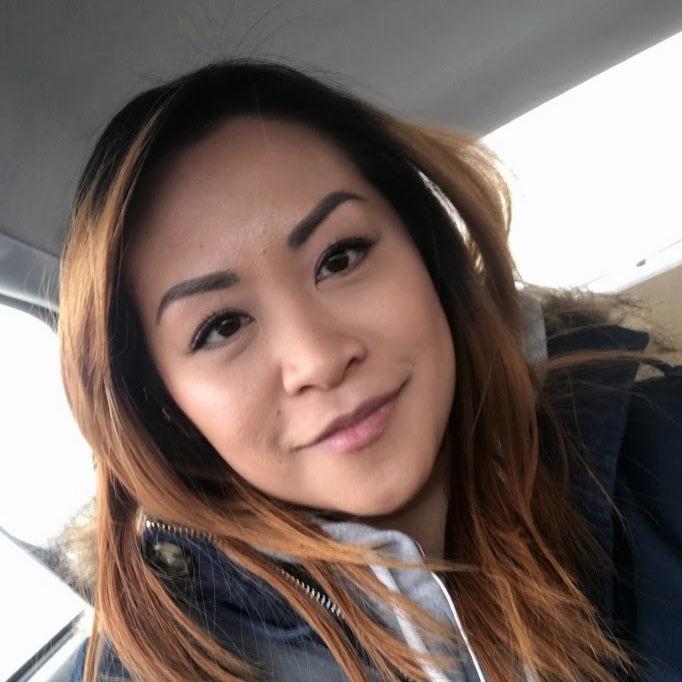CSpotlight: Creating a reality in computer science

In contrast to most of her peers, third-year B.S. student Christina Nguyen has followed a long and winding path in her pursuit of a computer science career. She has proven that anyone can realize their dreams at any moment throughout their lives. With a strong work ethic and passion for virtual and mixed reality research, Christina’s future as a computer scientist is limitless.
Why did you choose to study computer science at the University of Minnesota?
I was deciding between the University of Minnesota and Augsburg University. I actually received a strong financial aid package from Augsburg, but their program has pretty limited course offerings. The University of Minnesota has three times as many classes for students to choose from, and I liked that I could focus my studies in a specific area of computer science.
Tell us more about your educational journey.
Initially, I attended the University of St. Thomas for a totally different major: communications and journalism. Then I realized I did not want to pursue a career in public relations, despite my strong writing and public speaking background. So, I just became a bartender for about ten years. I realized that I also did not want to own a restaurant or a bar, which led me to the decision of going back to school. I enrolled at a local community college as a way to “test the waters” and see if school was really for me before I fully committed to it. It was here that I really discovered computer science.
What sparked your interest in computer science?
When I was growing up, my parents were really strict, so I was only able to watch the kids play from my windows. Reading books and surfing the internet were kind of my only “windows” into the real world. When AOL Instant Messenger came out, it became my main way to communicate and hangout with friends from school. I also started building my own websites since I had so much my free time. I guess I've always been into computer science, but didn't pursue it initially because I thought my writing and public speaking skills were stronger than my math and science skills.
How did you get involved with the Research Experience for Undergraduates (REU)?
Before applying to the REU, my plan was to just go into industry after graduation. However, one major thing that I learned about myself from bartending and managing restaurants was that I need to constantly be learning. Although these jobs were really engaging for the first few years, there came a point where there was not much to learn and I would get bored. I was worried that this could happen in a programming job as well, so I decided to apply for the REU program to explore more about the research side of computer science.
Tell us more about your research project with the Illusioneering Lab.
Right now, I am working on a cyber sickness study. Professor Evan Suma Rosenberg let me build the study from scratch. I'll be recruiting 90 participants to wear a VR headset and walk around a maze to pick up coins. We're trying to learn more about how different populations respond in a virtual environment. For instance, in previous research we've noticed that women seem to be more prone to cyber sickness than men. Unfortunately, we have not been able to run the user studies in person yet because of the pandemic, which means that we are recruiting from a potentially biased participant pool of individuals who already owned headsets.
What has been the most challenging part about this study?
I'd say the most challenging part was designing the study and trying to measure and quantify something that isn’t really measurable or quantifiable. This is also the most interesting part about research, since you are trying to use science to measure something that is intangible. For example, if you are trying to increase user “presence” in VR, then you have to define what “presence” is. So, in my study, trying to define what “VR experience” means is really hard just because if someone owns a headset, it doesn’t mean that they are going to use it everyday. So, trying to figure out how to measure someone’s “experience” is really hard.
You've also done research with the Interactive Visualization (IV) Lab. What was your role in this project?
My job in the IV Lab was more product and app design, rather than the traditional research at the Illusioneering Lab. For my first research project, I was assigned to develop a virtual reality storytelling app that was geared toward novice users—those who aren't super tech savvy or early adopters of VR technology.
What advice do you have for incoming computer science students?
Prioritize going to office hours. I realize this can be a scheduling challenge, especially if you are a student who also works or has a lot of family commitments. Also, you need to be your own advocate. Do not be afraid to fight for your grades. Follow up with your TA or professor if you think an exam or assignment is graded incorrectly. Spend the extra time to compose a nice and courteous email stating your case.
What are your plans after graduation?
I hope to go to grad school. However, I might have to wait six months since I will not be graduating until December of 2022, and many graduate programs do not admit new students for the spring term. I'll look for a job in the interim.